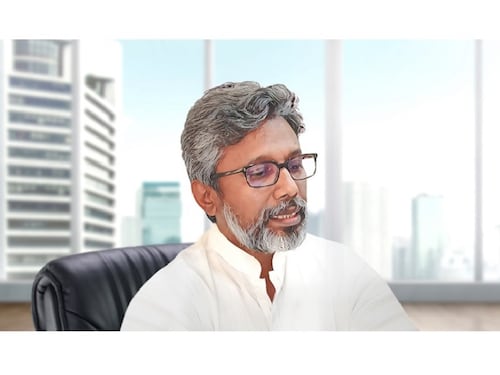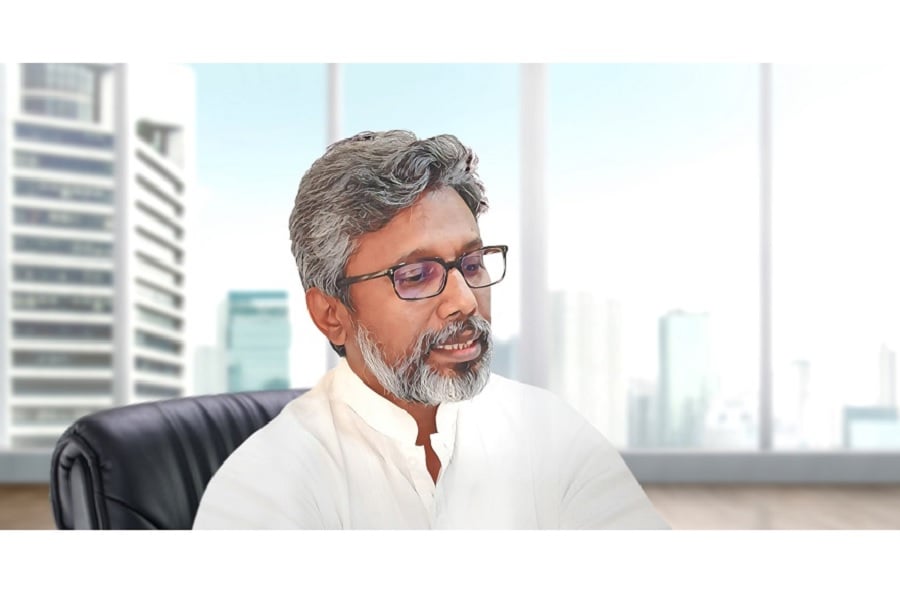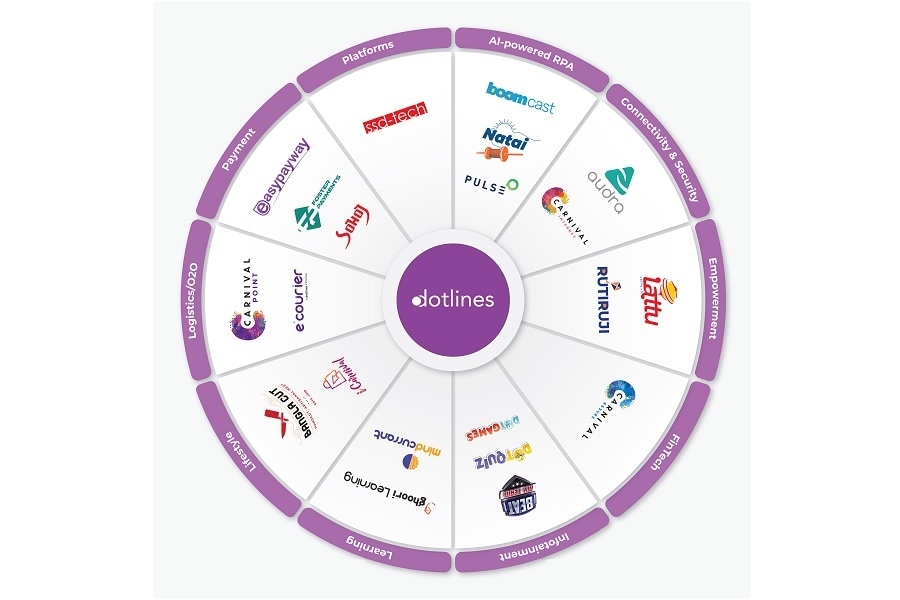A Bangladeshi tech entrepreneur taking his country's flag to the world
A Bangladeshi, inspired by his homeland, has taken it as an entrepreneurial mission to send waves across continents and carry his country's flag


 Kaushik Basu, in his op-ed “Bangladesh at 50" puts a glowing remark – “Today, as Bangladesh celebrates a half-century of independence, the country has become a case study in economic development that few would have predicted". Its sheer resilience, coupled with the liberal and humanistic approach as a nation, reserved its rightful spot of “economic bull" of South Asia.
Kaushik Basu, in his op-ed “Bangladesh at 50" puts a glowing remark – “Today, as Bangladesh celebrates a half-century of independence, the country has become a case study in economic development that few would have predicted". Its sheer resilience, coupled with the liberal and humanistic approach as a nation, reserved its rightful spot of “economic bull" of South Asia.
A non-resident Bangladeshi, inspired by his homeland, has taken it as an entrepreneurial mission to send waves across continents and carry his country’s flag. A Bangladeshi by born, educated and trained in Delhi, Dhaka and London, an investment banker in his early age and a self-made entrepreneur – Mahbubul Matin, bringing a unique blend of economics and technology, and his tech-enabled group Dotlines are weaving a story of impact and growth in 11 capitals of the world, and setting up a new narrative of a connected ecosystem.
Matin started his entrepreneurship in a unique domain, in 2005, only 16 years back. The native-grown ERP to capitalize local realities and nuances immediately captured the lion’s share in the fast-growing lease financing sector of the country. He then focused on another growth sector in his early days – telecom platforms and services. While Bangladesh experienced an unprecedented growth in telecom, so did Matin’s dreams. He and his team got a timely opportunity to serve a large global entity based out of Malaysia. Staying close to the vibrant tech hubs of the Far-East, he decided to establish Dotlines in Singapore and began to envision a linked ecology based on IT platforms. It might seem diverse on the outside, but at the core, one can hardly miss the connectivity each component has with the other.

Matin says, “To create lasting impact, it’s ideal to own the core verticals at your disposal, isn’t it? And of course, you need solid partnerships and client trust to work as a strong launching pad for your orbit-shifting growth". That is exactly what he and his Dotlines have built over the years. Dotlines owns pureplay connectivity (Carnival Internet), over which it provides security (Audra), skill building (Ghoori Learning), insurance and micro-financial services (Carnival Assure), payments (EasyPayWay, Foster Payments and Sohoj), lifestyle (e.g. BanglaCut), logistics and online-to-offline transactions (eCourier and Carnival Point). All of its interconnected ecosystems is supported and augmented by robust digital services platforms and AI-powered robotic process automation solutions (e.g. Pulse).
There were many positive and effective impacts of the Dotlines over many of the sister companies. Contrary to the popular inside-out strategy used by infrastructure companies, Carnival Internet launched a very unique “Go Rural" strategy. It continued to connect villages after villages and gave semi-urban and rural population the true taste of uninterrupted internet. Bangladesh government’s large mission of “village will become cities" so perfectly intertwines with Carnival Internet’s mission. The flame of Carnival Internet has already crossed over 80% of country’s major districts. Matin proudly adds, “In last ten years, thanks to our country"s current leadership regime, we have registered phenomenal development across all macroeconomic indicators. Most importantly, the tremendous amount of development that happened across the rural sector of the country, makes Bangladesh a case study not only in the South Asia, but probably across all development countries in the world."
Dotlines" Audra recognised the need for enterprise-grade security with home-grade simplicity and affordability for millions of homes and SMEs across Asia, and the company is now raving across countries like Malaysia, Indonesia, Singapore, India and the Middle East, as it partners with in-country distributors, big-name broadband players, high-street retails, and eminent eCommerce players. Its logistics company, eCourier, set world-class service quality and delivery norms for millions of e-commerce, SME, and enterprise players, and is currently transitioning to P2P delivery solutions under the tagline "We transport emotions." To standardize mass payment, the organization continues to innovate and implement secure payment channels through traditional, mobile, and online-to-offline methods. Its O2O digital payment service for blue-collar migrant workers, Sohoj, has a place among millions of workers in developed countries, most of whom are yet to get banked. His boutique food business, BanglaCut, promises to use artisanal authenticity and craftsmanship when processing beloved meat, fish, and side dishes and dreams of bringing authentic Bangladeshi flavors to the world.
When it comes to managing 1,100 people across Dotline’s 10 verticals of businesses, Matin plays the role of a maverick. He loves to challenge people, and he finds it more fascinating when diverse and strong minds challenge him all the more. “When your growth aspiration is geometrical, you must know that – you cannot centre things around you, rather invite diverse talents, give them the field to play and serve them so that they flourish together with their businesses", says Matin. His senior and extended senior teams are accumulation of industry leaders with blazing track records. While domain expertise and centre of excellence creation remain at the crux of it, at the mid to senior level, he ensured there is enough diversity in backgrounds, capabilities, and nationalities. Managing diversity at this wide level, with diverse cultural and regulatory scenarios, mixed with multiple time-band complexities has put Matin’s Dotlines in the right place, as it grows beyond boundaries, keeping that spirit of pliability and harmony of Bangladesh at the group’s core.
The pages slugged ‘Brand Connect’ are equivalent to advertisements and are not written and produced by Forbes India journalists.
First Published: Aug 31, 2021, 09:11
Subscribe Now